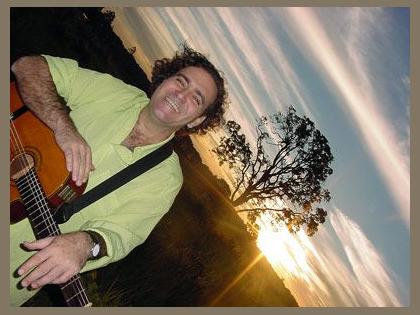 Zédu
Zédu
Zédu: A Band United by Music, Challenges, and Controversies
Nestled in the vibrant tapestry of Brazilian music, the band Zédu emerged with a unique blend of reggae, rock, and samba. Led by the enigmatic frontman Zédu, the band has captivated audiences with their thought-provoking lyrics and infectious melodies.
Genesis and Formation:
Zédu's musical journey began in the early 2000s when Zédu, a singer-songwriter from Bahia, met producer and multi-instrumentalist Binho Barreto. Together, they formed the nucleus of the band, which later expanded to include bassist Ivan Almeida and drummer Alexandre Almeida.
Debut Album and Breakthrough:
In 2007, Zédu released their debut album, "Quanta Gente Vem e Vai." The title track became an instant hit, resonating with listeners through its poignant lyrics about the ebb and flow of life. The album's success propelled the band into national prominence, establishing them as one of Brazil's most promising new acts.
Challenges and Controversies:
Zédu's rise to fame was not without its challenges. In 2010, the band was involved in a legal dispute over the use of a sample in one of their songs. Despite this setback, they remained steadfast in their musical pursuits.
Moreover, Zédu's outspoken nature and politically charged lyrics often stirred controversy. Their song "Puta Vida" (Damn Life) sparked a debate about police violence in Brazil, while "Bichona Rica" (Rich Fag) sparked discussions on LGBTQ+ rights.
Discography:
Throughout their career, Zédu has released a series of acclaimed albums, including:
* Quanta Gente Vem e Vai (2007)
* Paralelo 13 (2009)
* Simplesmente (2011)
* Ali (2013)
* O Mundo é Nosso (2015)
* A Cabeça de Zédu (2017)
Members:
* Zédu (vocals, guitar)
* Binho Barreto (guitar, bass, vocals)
* Ivan Almeida (bass)
* Alexandre Almeida (drums)
Legacy and Impact:
Zédu's music has left an enduring mark on Brazilian music. Their blend of genres and thought-provoking lyrics have inspired a generation of artists. Through their challenges and controversies, the band has remained a voice for the marginalized and a beacon of hope for those seeking change.
Nestled in the vibrant tapestry of Brazilian music, the band Zédu emerged with a unique blend of reggae, rock, and samba. Led by the enigmatic frontman Zédu, the band has captivated audiences with their thought-provoking lyrics and infectious melodies.
Genesis and Formation:
Zédu's musical journey began in the early 2000s when Zédu, a singer-songwriter from Bahia, met producer and multi-instrumentalist Binho Barreto. Together, they formed the nucleus of the band, which later expanded to include bassist Ivan Almeida and drummer Alexandre Almeida.
Debut Album and Breakthrough:
In 2007, Zédu released their debut album, "Quanta Gente Vem e Vai." The title track became an instant hit, resonating with listeners through its poignant lyrics about the ebb and flow of life. The album's success propelled the band into national prominence, establishing them as one of Brazil's most promising new acts.
Challenges and Controversies:
Zédu's rise to fame was not without its challenges. In 2010, the band was involved in a legal dispute over the use of a sample in one of their songs. Despite this setback, they remained steadfast in their musical pursuits.
Moreover, Zédu's outspoken nature and politically charged lyrics often stirred controversy. Their song "Puta Vida" (Damn Life) sparked a debate about police violence in Brazil, while "Bichona Rica" (Rich Fag) sparked discussions on LGBTQ+ rights.
Discography:
Throughout their career, Zédu has released a series of acclaimed albums, including:
* Quanta Gente Vem e Vai (2007)
* Paralelo 13 (2009)
* Simplesmente (2011)
* Ali (2013)
* O Mundo é Nosso (2015)
* A Cabeça de Zédu (2017)
Members:
* Zédu (vocals, guitar)
* Binho Barreto (guitar, bass, vocals)
* Ivan Almeida (bass)
* Alexandre Almeida (drums)
Legacy and Impact:
Zédu's music has left an enduring mark on Brazilian music. Their blend of genres and thought-provoking lyrics have inspired a generation of artists. Through their challenges and controversies, the band has remained a voice for the marginalized and a beacon of hope for those seeking change.